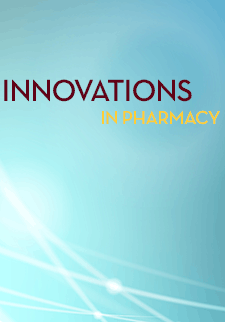Evaluating Student Performance and Perception of a Workshop Integrating Pharmacy Practice and a Pharmaceutics Lab
Dan Hansen
South Dakota State University College of Pharmacy and Allied Health Professions
Hemachand Tummala
South Dakota State University
Wendy Jensen-Bender
South Dakota State University
Brittney A Meyer
South Dakota State University
Surachat Ngorsuraches
Harrison School of Pharmacy Auburn University
DOI: https://doi.org/10.24926/iip.v9i3.1387
Keywords: curricular integration, pharmaceutics, pharmacy lab, compounding, pharmacy curriculum
Abstract
Objective: Evaluating Student Performance and Perception of a Workshop Integrating Pharmacy Practice and a Pharmaceutics Lab
Innovation: Common methods for curricular integration are often time and faculty-intensive. An innovative approach to integration was developed and utilized in an introductory compounding workshop. Faculty members collaborated with a compounding pharmacist to design and facilitate a pharmaceutics workshop for first-year pharmacy students. The workshop was composed of four major sections, an introduction to pharmaceutical compounding and the regulations surrounding manufacturing and sterility, a case discussion involving a pediatric patient and the need to develop an appropriate drug delivery system, a short review of pharmaceutical calculations and labeling requirements, and then an introduction to logistics and active learning in a lab setting.
Critical Analysis: After taking part in the workshop, students indicated a significantly higher comfort level going into the pharmaceutics lab (3.48±0.83 to 4.04±0.70) and in the compounding process (3.06±0.83 to 3.71±0.80). Their views of the clinical application of the lab and the need to use knowledge gained from other courses in the lab were also significantly improved (4.36±0.68 to 4.61±0.49 and 3.71±0.77 to 4.26±0.74, respectively). In addition, their perceptions of how they will utilize the skills developed as a practicing pharmacist, and their feelings towards the safety procedures involved in compounding, were also positively affected (3.96±0.87 to 4.45±0.59 and 3.28±0.92 to 3.91±0.72, respectively). Finally, students’ average quiz score in Spring 2016, when the workshop was instituted, significantly increased from Spring 2015 (90.154±4.98 versus 85.89±10.87, respectively).
Article Type: Note



